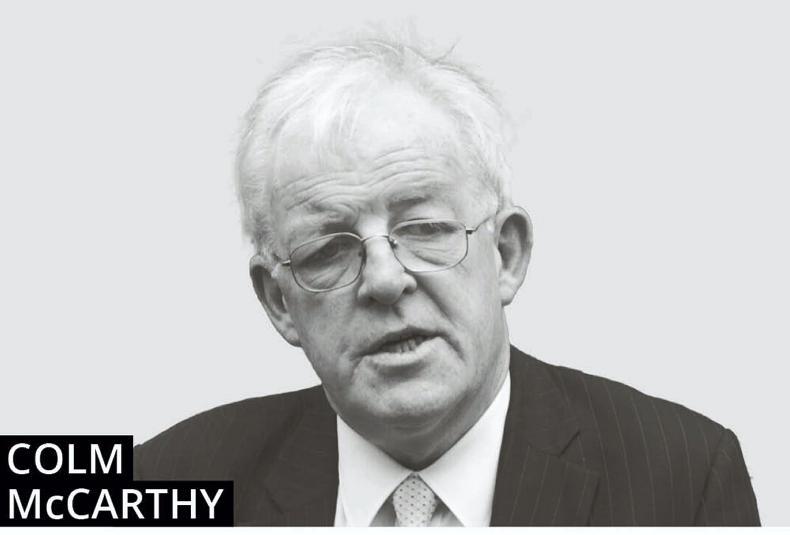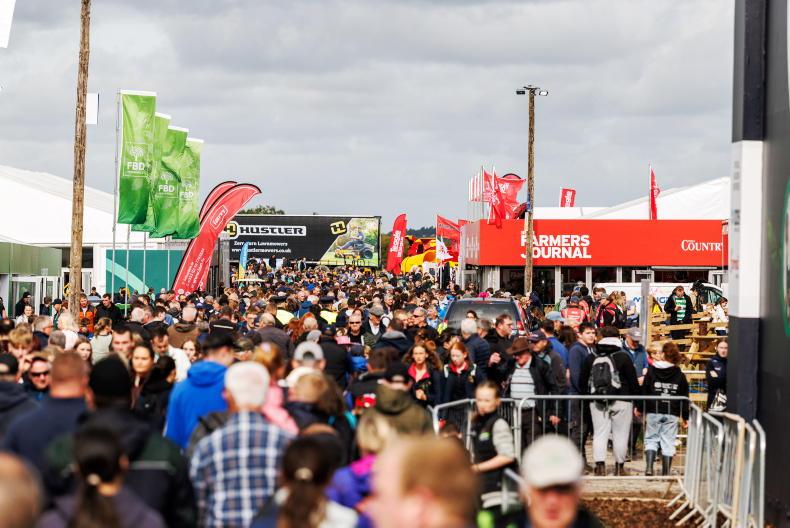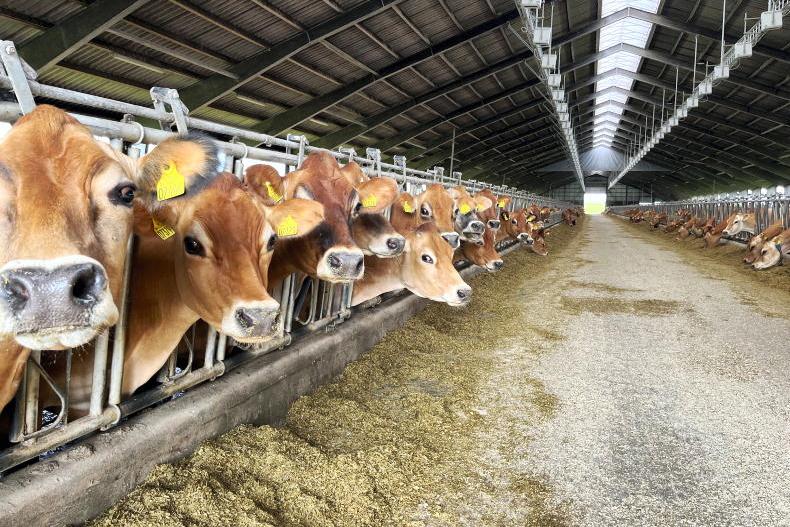It is widely acknowledged that there can be no solution to the COVID-19 crisis unless the pandemic is tackled as a global problem. The virus is not territorial. Purely national solutions do not exist, since even a country that controls it will re-import infection later if others fail.
In this regard, the COVID-19 crisis and climate change are one. Carbon emissions are a shared challenge for the planet as a whole, and purely territorial approaches are inefficient by design.
Ireland is one of many countries that has fallen for the simplistic notion that the world as a whole will get to net zero if every country does so
Each country adopting a net zero target for some future date harks back to the days of economic independence in economic policy and the protectionist errors which made the 1930s depression worse.
Ireland is one of many countries that has fallen for the simplistic notion that the world as a whole will get to net zero if every country does so (true as a matter of arithmetic) and that this is a sound and fair policy (false and an elementary misunderstanding).
Measured correctly, some countries will always appear to have net positive emissions and others net negative emissions, once the world has gotten the policy right and climate change has been brought under control. Guatemala should produce bananas and China should produce steel, if that is how their relative economic advantages work out.
It does not matter where the emissions arise and economic welfare is maximised if countries exchange their emission balances in accordance with the laws of comparative advantage
They should trade bananas for steel, which means that China should have net positive emissions and Guatemala should have a net negative balance. It is the planet that needs to get to net zero, if net zero is the key to climate stabilisation. It does not matter where the emissions arise and economic welfare is maximised if countries exchange their emission balances in accordance with the laws of comparative advantage.
Comparative advantage
Substitute Ireland for Guatemala and butter for bananas and you will understand how frustrating it can be to endure the current debate on emission targets between the potential coalition partners. Ireland has a high percentage of emissions coming from agriculture because Ireland has a relatively large agricultural sector. When history drew the boundaries of nation states, it did not foresee the folly of economic policymakers.
This is such obvious nonsense that it is never advocated explicitly
Does it make sense to force Guatemala and China to produce both steel and bananas? The logic would be that China should invest in banana plantations, however unsuitable the soil and climate, while Guatemala should invest in a sub-scale steel mill. This is such obvious nonsense that it is never advocated explicitly, but it is the concealed implication of national emission targets.
Reducing dairy output in Munster creates incentives for herds to graze the scorched plains of Andalucia, joining the banana plantations of China and the steel mills of Guatemala in an international suicide pact, destroying economic efficiency and hence prosperity for billions of people.
Logic trap
The theory of comparative advantage, the cornerstone of international economic policy since it was enunciated by David Ricardo two centuries ago, ordains that different geographical territories should choose to produce in line with their endowments and trade freely. Portugal, in Ricardo’s famous example, should trade wine with England for cloth. Ricardo came from Manchester, then the booming centre of the cotton trade, and was fond of a glass.
The pursuit of a serious worldwide policy to address the climate emergency is a moral imperative for this generation
Nobody was able to argue that Lancashire should have vineyards, then or since, until national emission targets came along. The pursuit of a serious worldwide policy to address the climate emergency is a moral imperative for this generation. There is a further moral imperative to control the climate while controlling the cost, avoiding arbitrary and needless interference with the international patterns of efficient production.
Every freshly-minted climate expert, including, most recently, from the youth wing of various political parties, has garnered headlines for discovering that Ireland’s agricultural sector is large relative to the rest of the economy. Hint: there are reasons for this – it did not happen because farmers are climate vandals.
There may be sensible ways in which Irish farming can reduce emissions at reasonable cost
Portugal, not Lancashire, produces wine. Munster, not Andalucia, produces butter and cheese. There may be sensible ways in which Irish farming can reduce emissions at reasonable cost. But the adoption of a net zero target for Ireland, even for Europe in its entirety, skips a step in the analysis.
The ultimate source of this logic trap, into which the transition-year analysts have fallen, is the fateful reluctance, 30 years ago, of the world’s policymakers to pursue a truly global climate strategy, through focusing on deterring the worldwide consumption of products and services that embody high emissions of greenhouse gases.
The silver bullet policy is a universal carbon tax at the consumption end, the policy that David Ricardo would have endorsed. The result of the failures leading up to the Kyoto agreement in 1995 has been the nationalisation of climate action and the lockstep retreat from common sense, which now threatens the most efficient of Europe’s agricultural producers.
Read more
All focus on Greens while farmers struggle in the red
It is widely acknowledged that there can be no solution to the COVID-19 crisis unless the pandemic is tackled as a global problem. The virus is not territorial. Purely national solutions do not exist, since even a country that controls it will re-import infection later if others fail.
In this regard, the COVID-19 crisis and climate change are one. Carbon emissions are a shared challenge for the planet as a whole, and purely territorial approaches are inefficient by design.
Ireland is one of many countries that has fallen for the simplistic notion that the world as a whole will get to net zero if every country does so
Each country adopting a net zero target for some future date harks back to the days of economic independence in economic policy and the protectionist errors which made the 1930s depression worse.
Ireland is one of many countries that has fallen for the simplistic notion that the world as a whole will get to net zero if every country does so (true as a matter of arithmetic) and that this is a sound and fair policy (false and an elementary misunderstanding).
Measured correctly, some countries will always appear to have net positive emissions and others net negative emissions, once the world has gotten the policy right and climate change has been brought under control. Guatemala should produce bananas and China should produce steel, if that is how their relative economic advantages work out.
It does not matter where the emissions arise and economic welfare is maximised if countries exchange their emission balances in accordance with the laws of comparative advantage
They should trade bananas for steel, which means that China should have net positive emissions and Guatemala should have a net negative balance. It is the planet that needs to get to net zero, if net zero is the key to climate stabilisation. It does not matter where the emissions arise and economic welfare is maximised if countries exchange their emission balances in accordance with the laws of comparative advantage.
Comparative advantage
Substitute Ireland for Guatemala and butter for bananas and you will understand how frustrating it can be to endure the current debate on emission targets between the potential coalition partners. Ireland has a high percentage of emissions coming from agriculture because Ireland has a relatively large agricultural sector. When history drew the boundaries of nation states, it did not foresee the folly of economic policymakers.
This is such obvious nonsense that it is never advocated explicitly
Does it make sense to force Guatemala and China to produce both steel and bananas? The logic would be that China should invest in banana plantations, however unsuitable the soil and climate, while Guatemala should invest in a sub-scale steel mill. This is such obvious nonsense that it is never advocated explicitly, but it is the concealed implication of national emission targets.
Reducing dairy output in Munster creates incentives for herds to graze the scorched plains of Andalucia, joining the banana plantations of China and the steel mills of Guatemala in an international suicide pact, destroying economic efficiency and hence prosperity for billions of people.
Logic trap
The theory of comparative advantage, the cornerstone of international economic policy since it was enunciated by David Ricardo two centuries ago, ordains that different geographical territories should choose to produce in line with their endowments and trade freely. Portugal, in Ricardo’s famous example, should trade wine with England for cloth. Ricardo came from Manchester, then the booming centre of the cotton trade, and was fond of a glass.
The pursuit of a serious worldwide policy to address the climate emergency is a moral imperative for this generation
Nobody was able to argue that Lancashire should have vineyards, then or since, until national emission targets came along. The pursuit of a serious worldwide policy to address the climate emergency is a moral imperative for this generation. There is a further moral imperative to control the climate while controlling the cost, avoiding arbitrary and needless interference with the international patterns of efficient production.
Every freshly-minted climate expert, including, most recently, from the youth wing of various political parties, has garnered headlines for discovering that Ireland’s agricultural sector is large relative to the rest of the economy. Hint: there are reasons for this – it did not happen because farmers are climate vandals.
There may be sensible ways in which Irish farming can reduce emissions at reasonable cost
Portugal, not Lancashire, produces wine. Munster, not Andalucia, produces butter and cheese. There may be sensible ways in which Irish farming can reduce emissions at reasonable cost. But the adoption of a net zero target for Ireland, even for Europe in its entirety, skips a step in the analysis.
The ultimate source of this logic trap, into which the transition-year analysts have fallen, is the fateful reluctance, 30 years ago, of the world’s policymakers to pursue a truly global climate strategy, through focusing on deterring the worldwide consumption of products and services that embody high emissions of greenhouse gases.
The silver bullet policy is a universal carbon tax at the consumption end, the policy that David Ricardo would have endorsed. The result of the failures leading up to the Kyoto agreement in 1995 has been the nationalisation of climate action and the lockstep retreat from common sense, which now threatens the most efficient of Europe’s agricultural producers.
Read more
All focus on Greens while farmers struggle in the red









SHARING OPTIONS